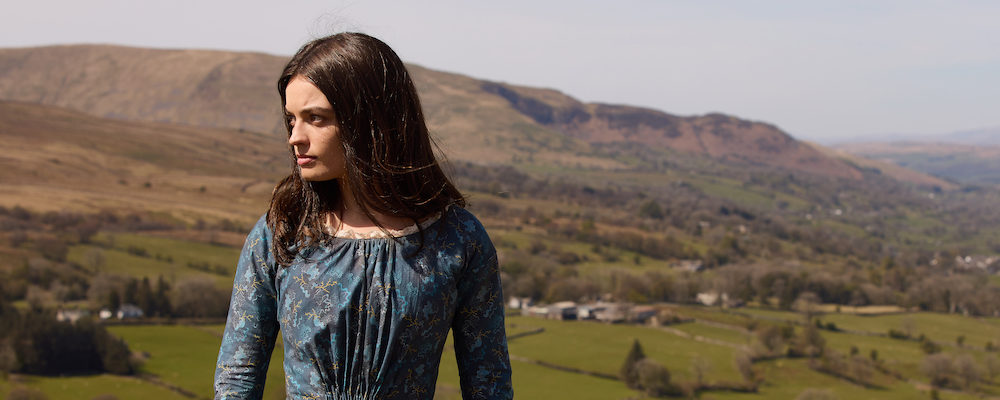‘Emily’ Provocatively Imagines the Life of ‘Wuthering Heights’ Author Emily Brontë
Sandra Miska
“Wuthering Heights” is undoubtedly one of the most memorable novels written in the English language, but how was its author, who was not yet 30 when it was first published, moved to write with such passion and depth? Frances O’Connor attempts to uncover this in her directorial debut, “Emily,” an imaginative and provocative drama inspired by the formative years of Emily Brontë. Emma Mackey plays the title character, an introverted teen who is impacted by love, death and a little bit of opioid addiction in the Victorian English countryside.
Emily Brontë is one of three gifted sisters who made their mark on the literary world. Emily was the middle sister, two years younger than “Jane Eyre” author, Charlotte Brontë (Alexandra Dowling), a teacher who is portrayed here as someone who cares a lot about appearances and gives neurodivergent Emily a hard time for being “the strange one.” Emily seems to have more in common with her gentler, younger sister, Anne Brontë (Amelia Gething). Between Charlotte and Emily there’s also a brother, Branwell (Fionn Whitehead), a carefree spirit or a supreme wastrel, depending on whom you ask. The Brontë household includes father Patrick (Adrian Dubar), the local preacher, and an elderly aunt (Gemma Jones).
Being a young man, Branwell has plenty of options when it comes to channeling his creativity into a potential career, and after dropping out of art school, he comes home to try his hand at writing. His sisters, meanwhile, are expected to become teachers, but Emily, who is prone to panic attacks, retreats home for her mental health after a brief stint at a boarding school. There, she bonds with fellow outcast Branwell, and while it is implied that she is supposed to be a stabilizing force in his life, the opposite happens.
But the greatest influence in Emily’s life during this period is William Weightman (Oliver Jackson-Cohen), her father’s curate, with whom she engages in a passionate affair. Like Branwell, he is a kindred spirit to her, but is more restrained by the rules of society and Christianity. Despite this, O’Connor does not hold back when it comes to depicting their sexual relationship, but their intellectual bond is even more important, as William is taken with her writing and creative spirit.
Emily’s romance with William does not end with happily ever after. They have a genuine connection, but they are hardly Catherine and Heathcliff, and the romance does not hit the way O’Connor most likely intended. Though, the scenes between Emily and Branwell are more memorable and imaginative than the ones between her and William.
Purists beware, O’Connor takes a great deal of dramatic liberty when it comes to Brontë. Such as, her sister, Anne, was the one who was attached to William Weightman, and there does not appear to be any proof that they had a sexual relationship. And, while there is no doubt that Branwell was a tortured soul and an opioid addict, there is no evidence that he influenced Emily in the way he does in this film.
What O’Connor does best is show how many of the struggles that young women go through are universal, no matter what era they come of age. Emily deals with insecurities, anxieties, shame and restlessness, and a source of sadness for Emily is that she does not believe her father loves her, but this relationship is not explored deeply enough. In the end, if the audience can get past the revisionism, “Emily” is an intriguing portrait of a young woman who went on to make a remarkable impact on the literary world.
“Emily” releases Feb. 17 in select theaters, Feb. 24 nationwide.

